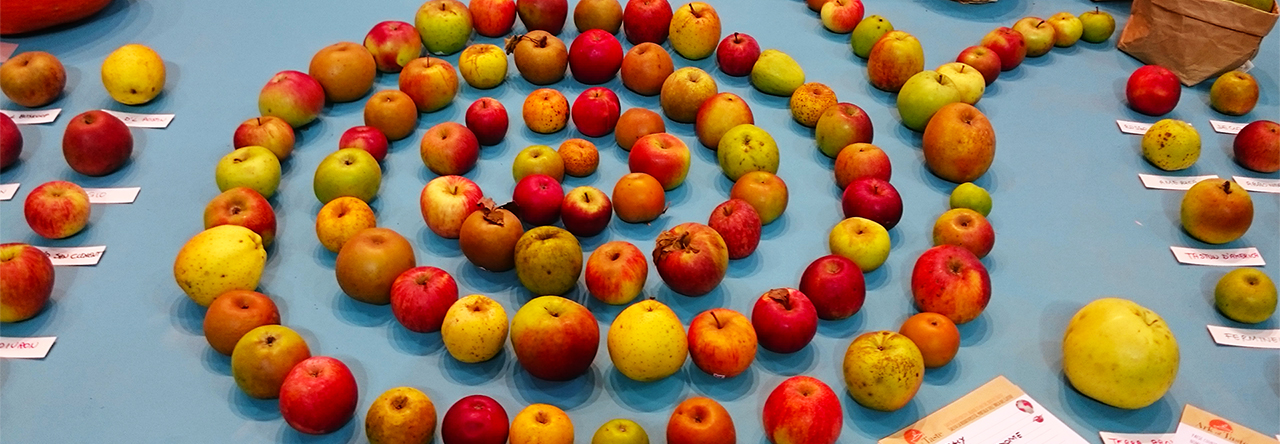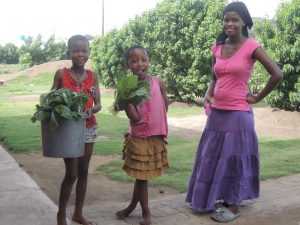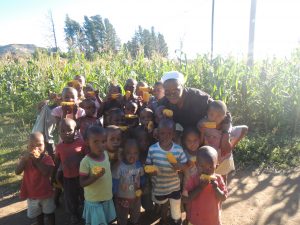Nu har vi fått mer information om en av de trädgårdar, den i Lesoto som vi stödjer.
Last week the garden’s referent wrote us about the latest developments.
”The crops that were produced were plenty and very nutritious, we fed the orphans and vulnerable children we care for and sold some to the community and that provided some income which was able to help in supplementing our limited resources. We also provided some to the people living with HIV. We were very successful with the crops and there has been a very big change as our children has benefited, they are in good health due to eating nutritious vegetables. Moreover, we employed people who were needy especially living with HIV to work in the farm, then with the income from selling of the vegetables we paid for their wages and were able to buy more seeds and seedlings for this and next year.”
Slow Food Gästrikland har, tack vare våra medlemmars och deltagares vävilja fått ihop medel att vara bidragsgivare till två trädgårdar i Afrika.
Vårt val och önskemål vad gäller trädgårdarna är att pengarna ska gå till barns utveckling och utbildning samt kvinnors möjlighet till att bli självförsörjande, utveckla byn och möjlighet att finansiera utbildning.
Slow Food International har placerat vårt stöd i Wonadia Women Community Garden i Burkina Faso och Tomato St. Camillus Shool Garden i Lesotho.
Wonadia Women Community Garden
Burkina Faso, Bobo-Dioulasso
Sibling with: Slow Food Gastrikland Convivium, Sweden
The Wonadia women’s community garden covers 320 m².
A group of about a dozen women aged between 40 and 60 years old tend the garden.
This group’s history goes back twenty years, but unfortunately, it fell apart because some of the members failed to understand.
Basically, this garden was set up to promote food self-sufficiency in the village. Initially it was a cooperative with pretty much the same philosophy as Slow Food’s: producing and eating locally.
Thanks to information and sensitising initiated by the Solidarité-Entraide des Jumeaux Association in the village, the group took on Slow Food’s vision to achieve the same results.
The beneficiaries use traditional techniques concerning irrigation for watering and bird and livestock manure for fertilising.
The women grow tomatoes, aubergines and gombo.
All the food is for improving family nutrition.
Area
Bobo-Dioulasso region
Coordinator
Théophile Sanou
Tomato St. Camillus School Garden
Lesotho, Lesotho
Sibling with: Slow Food Gastrikland Convivium, Sweden
The St. Camillus Orphans and Vulnerable Children Care Centre is located in in the Mohale’s Hoek region of Lesotho.
It is a community based organization for orphaned and vulnerable children, home-based care patients and caregivers.
The centre provides a warm, safe, accepting environment for HIV impacted people to meet, socialize, receive counselling and testing, and learn new income-generating skills.
It supports youth with after-school activities, tuition support, provisions and essentials. The centre also works to provide food security by teaching nutrition and agricultural techniques at the household level and also conducts HIV education through youth workshops and home-based care workshops. The centre has 3 gardens.
Two of the gardens have been planted to produce traditional, nutritious vegetables for sale to the community which will provide the centre needed income to sustain ourselves and reduce dependency on donations.
The tomato garden is a 1,120 m² field planted with different varieties of tomatoes using conservation agriculture techniques.
Irrigation is by sprinkler.
Area
Mohale’s Hoek region
Coordinator
Rethabile Lipholoana





